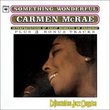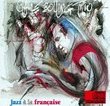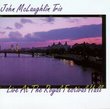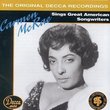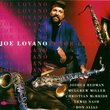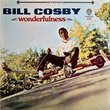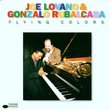| All Artists: Gustav Mahler, Richard Strauss, Pierre Boulez, Chicago Symphony Orchestra Title: Strauss: Also Sprach Zarathustra / Mahler: Totenfeier - Chicago Symphony Orchestra / Pierre Boulez Members Wishing: 1 Total Copies: 0 Label: Deutsche Grammophon Release Date: 9/14/1999 Genre: Classical Styles: Forms & Genres, Theatrical, Incidental & Program Music, Symphonies Number of Discs: 1 SwapaCD Credits: 1 UPC: 028945764924 |
Search - Gustav Mahler, Richard Strauss, Pierre Boulez :: Strauss: Also Sprach Zarathustra / Mahler: Totenfeier - Chicago Symphony Orchestra / Pierre Boulez
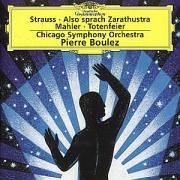 | Gustav Mahler, Richard Strauss, Pierre Boulez Strauss: Also Sprach Zarathustra / Mahler: Totenfeier - Chicago Symphony Orchestra / Pierre Boulez Genre: Classical
|
Larger Image |
CD DetailsSimilarly Requested CDs
|
CD ReviewsShocking Strauss, Magnificent Mahler Thomas B Dawkins | 03/22/2000 (5 out of 5 stars) "The Strauss is magnificent, powerful and one of the most excited versions I have ever heard. However, being a Mahler freak, it is on the last movement that I shall concentrate.Mahler and Boulez make an excellent combination, but add in the Chicago Symphony and you have a trio that cannot be beat. Although the track listing here specifies the Totenfeier as the first movement to the second symphony, this is only partially true. The version heard here is the prototype for what eventually becomes the beginning of the second symphony. The Totenfeier of 1888 (recorded here) is rarely performed, and has a somewhat smaller orchestration than the later version. The development section is partially different, and lacks the climax of the forceful false-recapitulation of the beginning string gesture. This is all commentary on the composition, not the recording, which is superbly clean and well-thought-out. All of the high brass chords tune flawlessly and without cracking. It is particularly interesting that the Strauss Also Sprach Zarathustra is presented along with this piece, as its opening uses a motive borrowed (?) from the end of the Totenfeier; the loud C Major to minor chord with the "sighing" trumpet changing the E to an E-flat. The motion that begins the Strauss (C, G, C', E, E-flat) also contains an inversion of one of the primary motives of the Totenfeier, (C', G, C) which is presented throughout as a dotted figure. All too often, experienced listeners let their ears go on auto-pilot when it comes to familiar works, and this Mahler will (thankfully!) throw you for a curve." Outstanding! D. Seymour | Atlanta, GA USA | 04/26/2002 (5 out of 5 stars) "Another great recording by Pierre Boulez and the Chicago Symphony! Compared with my other favorite recording of Also Sprach Zarathustra (Previn in Vienna on Telarc) which is astronomical in proportion, Boulez's rendition, by contrast, is earthy and gritty. The Chicago Symphony captures the sounds of the Dawn of Man as if from the sludge. The opening sunburst is not overdone - with the result that there is less of a disconnect between the impressive explosion at the beginning and the lyricism of what follows. Boulez's controlled approach with the opening allows the climaxes throughout the remainder of the piece to become all the more important and satisfactory. The sound is immediate and the Chicago Symphony sounds like a million. The addition of Mahler's Totenfeier (opening to the 2nd Symphony "Resurrection") makes an excellent companion. A great disc whether you're a fan of Strauss, Mahler or both. An outstanding showcase!" An interesting misfire Paul Bubny | Maplewood, NJ United States | 08/06/2002 (2 out of 5 stars) "Every now and then a great musician miscasts himself by taking on repertoire he probably should have avoided. Boulez is just such a musician, and Richard Strauss' "Also sprach Zarathustra" is just such a piece. I can understand in theory why the great French conductor was drawn to the work: His identification with Wagner would, I suppose, translate into a curiosity (if nothing else) about Bruckner and Strauss, two of Wagner's successors in Austro-Germanic Late Romanticism. Furthermore, "Zarathustra" is the most "philosophical" of the Strauss tone-poems. (We already know about Boulez's identification with the music of Mahler as a precursor of modernism.) Boulez's live Bruckner Eighth, released a couple of years ago, was compelling if not always idiomatic, but his rendition of Strauss is off-base. Way off-base. To me, it sounds as though half the score didn't interest Boulez, so he simply plows through those sections without paying much attention to them. Where Boulez does seem engaged enough to shape the score, the attacks, balances and phrasing sound drained of expression or feeling (except for the ardent violin solo in the "Dance-Song," which really sounds out of place). The result is like Romanticism on novocaine. I guess Boulez was trying to give us Strauss without the 101 Strings approach of Karajan, but Fritz Reiner already did that 45 years ago without turning the Chicago Symphony into a band of zombies. Even the recorded sound is murky and rolled-off at the top. However, the coupling, Mahler's "Totenfeier" (the rarely-played first version of what became the opening movement of his "Resurrection" Symphony) is worth hearing and benefits from more committed playing."
|

 Track Listings (10) - Disc #1
Track Listings (10) - Disc #1
